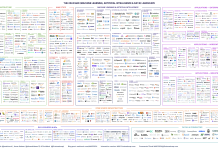Dayna Arnold, Project Manager at Zest Consult, a leading digital technology consultancy, discusses the challenges businesses face with AI and the struggle for ethical systems
Innovation is crucial for business growth today, with artificial intelligence (AI) being a key driving force. AI can enhance customer engagement, streamline operations, and provide a competitive advantage when implemented effectively, but, without ethical systems, could result in serious challenges of bias.
Machine learning, a subset of AI, utilises large amounts of data and algorithms to mimic human learning. As a result, it has numerous applications, including object recognition, text translation, decision-making, and smart devices.
However, deploying AI models can present challenges with the use of ethical systems which must be addressed if successful implementation and business objectives are to be achieved.
AI systems may perpetuate bias and discrimination if they are built using biased data. For example, real-world data sets have the potential to exclude certain populations or contain errors that can lead to inaccurate models of real-world scenarios, which prove to be unsuccessful during testing or produce results that are inaccurate or biased.
Additionally, AI can introduce new ethical challenges, not just in terms of bias and inclusivity, but also around how it may be used in automation, decision-making, and the potential impact on safety and jobs. We argue here that ethical systems for AI are a must for your business.
Why you need a consultant for AI advice
Most organisations do not have the experience and skills in-house to navigate these ethical systems and bias challenges associated with implementing AI.
It, therefore, makes sense for organisations to seek help from consultants who are experts in ethical systems to advise them before and during AI deployment, so they can avoid various ethical pitfalls by meeting or staying ahead of upcoming legislation in this area.
In addition, a clear set of policies and processes for using AI helps ensure an organisation avoids the potential risks associated with AI technology. Finally, it provides quality and security assurance for its customers.
Zest Consult is an experienced team of consultants and engineers producing digital technology solutions for CCTV, AI, and Situation Awareness. They guide organisations on their AI deployment journeys with expert research-based advice and present best practices for ensuring their AI systems are designed and deployed responsibly and ethically. This includes identifying potential sources of bias in data and algorithms and implementing measures to mitigate their impact.
Zest Consult have provided their expertise and experience within various sectors (i.e., construction, transport, defence, etc.) and guided them in preparing to deploy AI systems within their organisations. For example, using the latest research in AI and machine learning, Zest Consult collaborated with Costain (a Leading UK Construction Company) and the University of West England to develop and apply a synthetic data approach to the design of a leading-edge AI machine learning system as a viable solution for mitigating the risk of bias posed by using real-world data.
AI & data technology, without the bias
Synthetic data is created using AI algorithms that represent data with the appropriate balance, distribution, and other parameters instead of using real- world events where there is less control over such parameters. This reduces bias in datasets, ultimately increasing the accuracy of predictive modelling used in machine learning.
This synthetic data approach addresses the challenges of protecting sensitive data as well. The data generated is new with the same characteristics as the original real data, thus producing the same results. However, instead of merely altering the data, the synthetic data replaces the original data mimicking only the statistical properties while maintaining the same predictive ability.
Therefore, it is almost impossible to recreate the original data, which keeps the original data secure. This removes the barriers associated with privacy and security regulations, which would otherwise make obtaining information more difficult, costly and time- consuming.

Zest Consult has also been working with Transport for London (TfL), a leading UK transport authority since 2021, to overcome such ethical challenges and empower them to embrace emerging AI and data technology.
Zest is providing TfL with guidance to help them navigate these challenges, enabling them to achieve their strategic objectives and deliver significant advancements using visual derived data and information.
To achieve this, our team have been working with a cross-section of business areas, including Data & Privacy and Diversity & Inclusivity, to ensure that these key business areas are represented in the use of any new technology to ensure that it is used ethically and with privacy and inclusivity in mind.
Ethical systems are needed in organisations adopting AI
As AI systems become more sophisticated, they may gain access to sensitive information, raising concerns about bias and how that information will be used and protected. Therefore, organisations must develop ethical systems, policies, and processes for using AI in their business.
These ethical systems, policies and procedures must be reviewed regularly, especially given the pace of change in this technology and the current lack of legislation in this area; otherwise, they risk legal action and costs in fines and re-visiting technology deployment processes.
Developing and implementing secure, accurate, and reliable AI systems is critical to achieving strong ethical system standards in protecting the public’s rights and safety while minimising associated risks of bias so they may positively impact the lives they are entrusted to serve.
By working with consultants like Zest Consult, businesses can ensure their use of AI aligns with their values and meets the highest ethical standards. Zest Consult helps organisations purposefully address privacy and bias as they deploy their AI systems, improving their ability to overcome such challenges, protect against emerging threats, and seize new technological opportunities in this era.

This work is licensed under Creative Commons Attribution-NonCommercial-NoDerivatives 4.0 International.











